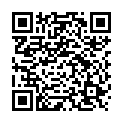|
|
|
| Module code: E1514 |
|
|
3V+1U (4 hours per week) |
|
5 |
| Semester: 5 |
| Mandatory course: yes |
Language of instruction:
German |
Assessment:
[still undocumented]
|
E1514 (P200-0005) Electrical Engineering, Bachelor, ASPO 01.10.2012
, semester 5, mandatory course
|
60 class hours (= 45 clock hours) over a 15-week period.
The total student study time is 150 hours (equivalent to 5 ECTS credits).
There are therefore 105 hours available for class preparation and follow-up work and exam preparation.
|
Recommended prerequisites (modules):
E1105
E1410
[updated 14.07.2016]
|
Recommended as prerequisite for:
E1611
[updated 05.05.2013]
|
Module coordinator:
Prof. Dr. Martin Buchholz |
Lecturer:
Prof. Dr. Martin Buchholz
[updated 14.07.2016]
|
Learning outcomes:
The students:
- learn how to carry out digital signal processing and analysis of telecommunication signals and systems
- know different structures of discrete-time systems and is able to examine them analytically by using the discrete Fourier transform and z-transform
- know how to develop digital, recursive and non-recursive filters, when confronted with a certain filter specification
- learn to simulate and implement digital algorithms in FPGAs (Field Programmable Gate Arrays)
- learn to implement Digital Algorithms into Field Programmable Gate Arrays (FPGA) using SPW/Synopsys and Vivado/XILINX
- know the design flow of real-time implementation of digital algorithms
[updated 14.07.2016]
|
Module content:
1. Introduction, motivation
2. Basis
ideal and real sampling, sampling theorem, practical considerations of sampling
3. Discrete-time signals and systems
discrete convolution, FIR and IIR systems
4. Structures of discrete-time systems
5. Depiction of discrete-time signals and systems in the frequency spectrum
6. The z-transform
7. Design of recursive, digital filters
8. Design of non-recursive, digital filters
9. Model-based FPGA implementation of digital algorithms
Examples and practical work are available for all chapters
[updated 14.07.2016]
|
Recommended or required reading:
Brigham, E.O.: FFT Anwendungen, Oldenbourg, 1997 Goetz, H.: Einführung in die digitale Signalverarbeitung, Teubner, 1998 Hoffmann, J.; Quint F.: Signalverarbeitung mit Matlab und Simulink, Oldenbourg, 2007 Kammeyer, K.-D.; Kroschel K.: Digitale Signalverarbeitung – Filterung und Spektralanalys, Teubner Oppenheim, A. V.; Schafer, R. W.: Zeitdiskrete Signalverarbeitung, Oldenbourg, 1999 Stearns, S.D.; Hush D.R.: Digitale Verarbeitung analoger Signale, Oldenbourg, 1999 von Grünigen, D. Ch.: Digitale Signalverarbeitung, Carl Hanser, 2004 Werner, M.: Digitale Signalverarbeitung mit Matlab, Intensivkurs mit 16 Versuchen, Vieweg, 2006
[updated 14.07.2016]
|


